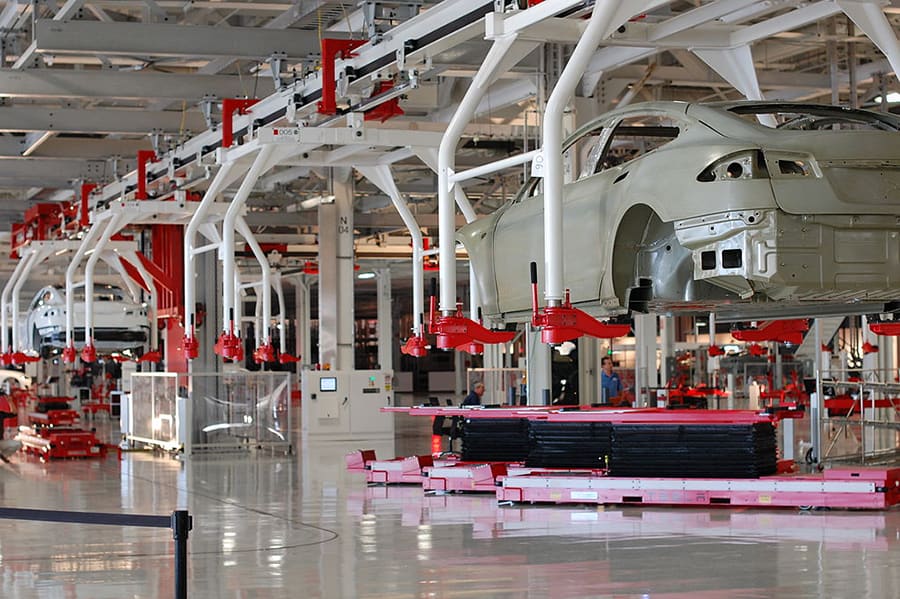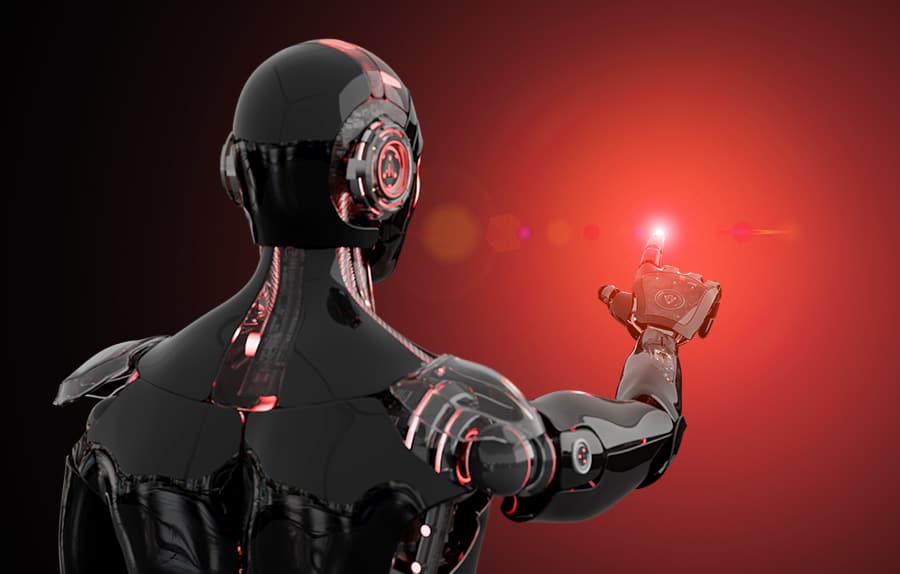Is there a demand for mechanical engineers in the future? You bet! Despite moving into the digital age, we still live in a physical world.
As software and automation sweep through industries far and wide, there’ll always be a need for someone to bridge the gap between the digital realm and the physical world. And that’s when mechanical engineers step up and shine.
In the pulsing heart of Silicon Valley, they say, “No cars, no Uber.” So, let’s explore the future demand for mechanical engineers.
Mechanical engineering employment and wage data
According to the U.S. Bureau of Labor, there’s a projected 4% increase in employment for mechanical engineers from 2019 to 2029. Here’s a key tidbit:
“Job prospects may be best for those who stay abreast of the most recent advances in technology.”
Now, feast your eyes on the table below, which shows the 2019 median salaries based on the U.S. Bureau of Labor. I only listed the top median salaries above mechanical engineers.
| Engineering Discipline | 2019 Median Salary |
|---|---|
| Petroleum Engineers | $137,720 |
| Computer Hardware Engineers | $117,220 |
| Aerospace Engineers | $116,500 |
| Nuclear Engineers | $113,460 |
| Chemical Engineers | $108,770 |
| Electrical and Electronics Engineers | $101,250 |
| Materials Engineers | $93,360 |
| Marine Engineers and Naval Architects | $92,400 |
| Bioengineers and Biomedical Engineers | $91,410 |
| Health and Safety Engineers | $91,410 |
| Mining and Geological Engineers | $91,160 |
| Mechanical Engineers | $88,430 |
With a median salary of $88,430, that’s a whopping 2.2 times more than the median annual salary for all occupations in the U.S., which is $39,810. And if you check out Levels.fyi, the 90th percentile earns a cool $185,000. These figures come from big-name companies like Boeing, Tesla, and Google.
To pocket this kind of money, you’ll need to level up and aim to become a 10x engineer. Heck, I even know mechanical engineers raking in $500,000 a year!
The breadth of the mechanical engineering field

Mechanical engineers have their fingerprints on just about everything you can touch.
To give you a taste of how broad the field is, here are some study subjects offered by MIT’s mechanical engineering department:
- Mechanics: modeling, experimentation, and computation
- Design, manufacturing, and product development
- Controls, instrumentation, and robotics
- Energy science and engineering
- Ocean science and engineering
- Bioengineering
- Nano/micro science and technology
And not to be outdone, Stanford’s mechanical engineering department offers courses in:
- Energy science and technology
- Propulsion
- Sensing and control
- Nano- and micro-mechanics
- Design mechatronics
- Computational simulation
- Solid and fluid dynamics
- Micro-electromechanical systems (MEMS)
- Biomechanical engineering
This degree is clearly a versatile beast, covering a vast array of subjects. In most college curricula, you’ll stumble upon these sub-branches:
- Manufacturing engineering
- Aerospace engineering
- Automotive engineering
- Material science
Booming fields in mechanical engineering
Software seems to be taking over the world, and old-school mechanical hardware might appear a bit dull in comparison.
But if you pause and take a gander around, you’ll spot some mind-blowing advancements in mechanical engineering these days. Let’s dig into a few.
Nanoengineering
This field delves into the study and application of super tiny devices. Check out some of the thrilling application opportunities:
- Stronger materials for construction and manufacturing
- Mini-doctors inside human bodies to detect and fix abnormalities
- Sensors to identify failure points in critical infrastructure
- Longer-lasting batteries and improved fuel efficiency
- Water purification and environmental cleanup
Biomechatronics
We’re slowly morphing into cyborgs, like in those epic Terminator flicks. Okay, maybe not full-on machine robots just yet, but we’re definitely moving beyond skin and bones.
Biomechatronics is a wild mix of biology, electronics, and mechanics, covering developments like:
- Actuators
- Biomedical devices
- Controllers
- Implants
- Sensors
Manufacturing
Every factory wants to crank up production and max out efficiency with automation. In this field, you’d be doing stuff like:
- Designing manufacturing processes to cut costs
- Creating and executing fabrication methods
- Automating facilities using computer tech
- Finding solutions to production hiccups
Maybe someday machines will build machines, and we’ll be living in a gnarly sci-fi world. But for now, humans still need to lead the charge.
Other focus areas
Mechanical engineering is the backbone of nearly every engineering field. Check out these examples:
- Design wind and hydroelectric turbines for green energy
- Help electronics and software mesh with the physical world
- Create machines that spawn robots and automation processes
Now, let’s zoom in on electric vehicles and HVAC in the next sections.
Electric vehicles versus ICE

Every ride out there relies on mechanical engineers, including electric cars.
Sure, electric vehicles have way fewer moving parts than your classic Internal Combustion Engine (ICE) car. But electric vehicles still rock components like:
- Steering systems
- Wheels and brakes
- Instruments
- Chassis
- Suspensions
- HVAC systems for peeps and batteries
- Seats, doors, and other groovy interior and exterior bits
- Toolmaking gear and molds for vehicle parts
- Machines used in manufacturing and testing
The design of these parts depends on complex mechanical engineering topics like:
- Thermodynamics
- Mechanics
- Robotics
- Kinematics
- Fluid analysis
Mechanical engineer jobs at Tesla
Let me tell you about some awesome job opportunities for mechanical engineers at Tesla. Check out the massive variety of job types for different mechanical engineering positions:
Senior Mechanical Design Engineer
“…looking for a highly motivated Mechanical Design Engineer to contribute to the design, install and ramp of battery cell manufacturing equipment.”
Senior Interior Engineer
“Along with Tesla’s vehicle engineering team, you will release and launch interior components and subsystems…”
Mechanical Design Engineering Manager, Gigafactory
“Tesla’s Infrastructure Engineering team is seeking a Mechanical Design Engineering Manager to play a pivotal role in building our Texas Gigafactory.”
Mechanical Design Engineer – Autopilot Electronics
“Tesla is seeking a mechanical design engineers in the Autopilot and Electronics Product Design team.”
Mechanical Design Engineer – Chassis
“The Chassis Design Engineering team plays a critical part in that mission, helping to deliver a safe, efficient, comfortable, and enjoyable driving experience, while also focusing on the sustainability and value of Tesla’s products.”
Mechanical Design Engineer – Tool and Die
“…looking for a highly-motivated Mechanical Design Engineer to contribute to the development and fabrication of high volume metal stamping dies.”
Mechanical Design Engineer – Power Electronics
“Tesla’s Power Electronics group is looking for a skilled and motivated individual to perform mechanical design activities for our power converter products to be used in Tesla vehicle powertrains and energy storage products.”
Senior Mechanical Design Engineer, Solarglass Roof
“The Senior Mechanical Design Engineer is responsible for inventing and shepherding design concepts into viable product offerings.”
I could go on and on, but here’s the gist: there’s a never-ending list of positions for mechanical engineers. So, don’t fret! Electric vehicles aren’t making mechanical engineers obsolete.
Artificially controlled environments
Mechanical engineering is a thrilling field, and one of its key aspects is designing swanky HVAC (Heating, Ventilation, and Air-Conditioning) systems. Let’s face it, we humans are everywhere, chilling in the icy tundras and sweating it out in sweltering deserts. Take Arizona, for instance—without temperature control, you’d be toast in just a few summer days!
And that’s not all. We manipulate our environment in various ways, including:
- Pressure
- Humidity
- Gas composition
- Noise control
And with climate change rearing its ugly head, these adjustments become crucial for both our survival and the success of our crops. So, until we can move fluids and heat or cool air with mere digital bits, mechanical engineers are here to stay.

Important Note: Fluid dynamics studies show how matter moves in various states, like liquid, gas, plastic, or plasma. Here’s a short list of industries that rely on fluid mechanics:
- Wind, hydro, and steam turbines
- Jet and combustion engines
- Hydraulic control systems
- Aircraft control and aerodynamics
- Fuel injection
- Blood and plasma flow
Dependency of software on mechanical engineers

Alright, let’s get back to software.
Software needs a home, a host organism to thrive. In most cases, that host is some kind of hardware:
- Autonomous cars
- Rockets
- Helicopters and airplanes
- Robots and machines
- Bio-mechanical body parts
Even the mighty AI needs a cozy little nest:
- Computers
- Data servers
- HVAC for cooling electronics
- Power equipment to feed electronics
Guess who designs these hosts? Yup, you got it—mechanical engineers!

Important Note: Software innovations happen at lightning speed, thanks to low development overhead. It’s easy to think software is taking over the world. But remember, it needs us and our material world more than we need it.
Future technological advancements
We’re living in a world where jaw-dropping breakthroughs often emerge from software and electronics. And guess what? Mechanical engineers are surfing this wave of innovation, making huge leaps in areas like:
- Accurate real-world scenario simulations
- Evaluating countless variables and studying scenarios simultaneously
- Precision measurements
- Lightning-fast information processing
- Gathering massive amounts of valuable data
These mind-blowing advancements have turbocharged mechanical engineering, leading to the fine-tuning and mastery of existing designs. Ingenious inventions are popping up like daisies in a positive feedback loop of progress, opening up a buffet of niche job opportunities for engineers.
Engineers adapting to a rapidly changing job market
Let’s face it, job markets are always changing. Thanks to software and electronics, more lower-level mechanical engineering jobs will be automated. Or, at the very least, jobs that used to need three engineers might only need one now. Plus, with globalization in full swing, outsourcing jobs will become even more widespread and less frowned upon.
So, was I bullshitting when I said mechanical engineering has a bright future?
Absolutely not! The demand for mechanical engineers is only going up, but here’s the catch. Resting on your laurels just because you’ve got some fancy letters after your name won’t cut it anymore. We’re zooming into a future where only results matter, and it’s a race to the top. You’ll either need to dive deeper into your niche or blend your skills with another trade.
To boost your engineering game, dive into my other articles:
- 5 NASA engineering mindset lessons for engineers
- Importance of hands-on skills for engineers
- 5 ways to master leadership in engineering
- Learning from engineering failures – 4 things to know
- 5 key social qualities of a great engineer
- 15 non-technical things every engineer should know
- Engineering mindset examples by 10x engineers
- 10 ways on how to improve as an engineer
- The 17 Elon Musk learning strategy lessons
- 10 easy tips on how to work like a machine
- 22 ways how to study engineering subjects
“Is there a demand for mechanical engineers in the future?” wrap up
Until we all go full Matrix and upload our minds into computers, we’ll still need mechanical engineers. But even then, mechanical engineers will be the ones designing and maintaining the machines that store and cool our digital selves.
Sure, software and machines will weed out the lower-level engineers, but the future is bright for highly skilled and creative engineers.
Ultimately, your success is in your hands. You can either ride the wave to the top or get left in the wake.
So, what do you think the demand for mechanical engineers will be in the future? What factors will have the biggest impact on that demand?
